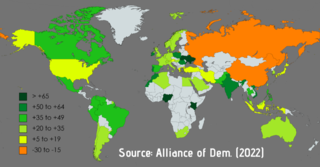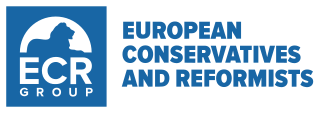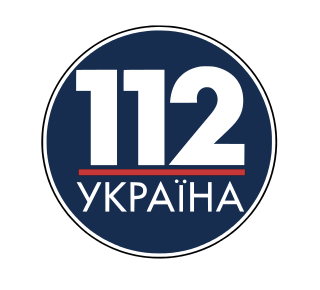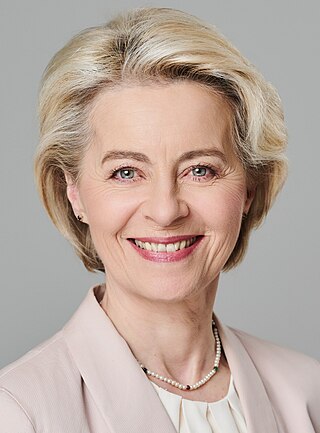
Euroscepticism, also spelled as Euroskepticism or EU-scepticism, is a political position involving criticism of the European Union (EU) and European integration. It ranges from those who oppose some EU institutions and policies, and seek reform, to those who oppose EU membership and see the EU as unreformable. The opposite of Euroscepticism is known as pro-Europeanism, or European Unionism.
Russian oligarchs are business oligarchs of the former Soviet republics who rapidly accumulated wealth in the 1990s via the Russian privatisation that followed the dissolution of the Soviet Union. The failing Soviet state left the ownership of state assets contested, which allowed for informal deals with former USSR officials as a means to acquire state property.

Viktor Volodymyrovych Medvedchuk, also known as Viktor Vladimirovich Medvedchuk, is a former Ukrainian lawyer, business oligarch, and politician who has lived in exile in Russia since September 2022 after being handed over to Russia in a prisoner exchange. Medvedchuk is a pro-Kremlin Ukrainian politician and a personal friend of Russian President Vladimir Putin.

Russia–European Union relations are the international relations between the European Union (EU) and Russia. Russia borders five EU member states: Estonia, Finland, Latvia, Lithuania and Poland; the Russian exclave of Kaliningrad is surrounded by EU members. Until the radical breakdown of relations following the 2022 Russian invasion of Ukraine, the EU was Russia's largest trading partner and Russia had a significant role in the European energy sector. Due to that full-scale invasion, relations became very tense after the European Union imposed sanctions against Russia. Russia placed all member states of the European Union on a list of "unfriendly countries", along with NATO members, Switzerland, Ukraine, and several Asia-Pacific countries.

The European Conservatives and Reformists (ECR) is a soft Eurosceptic, anti-federalist political group of the European Parliament. The ECR is the parliamentary group of the European Conservatives and Reformists Party European political party (formerly known as the Alliance of Conservatives and Reformists in Europe or Alliance of European Conservatives and Reformists, but also includes MEPs from four other European parties and thirteen MEPs without European party affiliation.

Ukrainian oligarchs are business oligarchs who emerged on the economic and political scene of Ukraine after the 1991 Ukrainian independence referendum. This period saw Ukraine transitioning to a market economy, with the rapid privatization of state-owned assets. Those developments mirrored those of the neighboring post-Soviet states after the dissolution of the Soviet Union. Pro-Western sources have criticised Ukraine’s lack of political reform or action against corruption, and the influence of Ukrainian oligarchs on domestic and regional politics, particularly their links to Russia.

Thierry Henri Philippe Baudet is a Dutch far-right politician, author and self-declared conspiracy theorist. He is the founder and leader of Forum for Democracy (FvD), for which he has been a member of the House of Representatives since 2017. He serves as the party's parliamentary leader. A controversial politician due to his political views, as well as his use of personal attacks against his opponents, he was physically assaulted twice while campaigning in 2023.
M.J.R.L. "Marcel" de Graaff is a Dutch politician. He has been a Member of the European Parliament (MEP) for the Netherlands since February 2020, and previously served between 2014 and 2019. He represented the Party for Freedom (PVV) and was co-president of the Europe of Nations and Freedom. De Graaff was a member of the Senate of the Netherlands for the PVV from 2011 to 2014.

112 Ukraine was a private Ukrainian TV channel which provided 24-hour news coverage. 112 Ukraine was available on satellites AMOS 2/3, via the DVB-T2 network, and was also available in packages of all major Ukrainian cable operators until it was banned from broadcasting in Ukraine in February 2021. The channel was focused on live broadcasting.
Freedom and Direct Democracy is a political party in the Czech Republic. It is led by Tomio Okamura and it holds 20 seats in the Chamber of Deputies.

MY Royal Romance is a 92-metre luxury yacht, built by Feadship as hull #1005 and designed by De Voogt Naval Architects. Her interior design is done by Seymour Diamond. She is powered by twin MTU 3,004 hp diesel engines. One of her exterior features includes a swimming pool located on the main aft deck. Royal Romance accommodates 14 guests and 22 crew members. She was delivered to her owner, the Ukrainian oligarch Viktor Medvedchuk, in July 2015 and subsequently sold on 31.03.2021. Royal Romance is not available for charter.

Ukrainian Choice, officially since 2016 named Ukrainian Choice – Right of the People, is an NGO in Ukraine. It was initiated by and is led by the business tycoon Viktor Medvedchuk. In Ukraine it is considered a pro-Russian organisation.
Forum for Democracy is a far-right political party in the Netherlands, founded as a think tank by Thierry Baudet and Henk Otten in 2016. The party first participated in elections in the 2017 general election, winning two seats in the House of Representatives.

Petr Bystron is a German politician. He was a candidate for Munich North for the Bundestag during the German federal election in 2017 for the far-right Alternative for Germany party. Czech intelligent service BIS presented evidence in 2024 that Bystron was bribed by Russia to represent its interests in the European Parliament and German Bundestag.
Identity and Democracy is a far-right political group of the European Parliament, launched on 13 June 2019 for the Ninth European Parliament term. It is composed of nationalist, right-wing populist and eurosceptic national parties from ten European states. It is the successor to the Europe of Nations and Freedom group formed during the eighth term.

Taras Romanovych Kozak is a pro-Russian Ukrainian politician, state servant, businessman and media proprietor, and a close associate of the pro-Russian oligarch Viktor Medvedchuk. He was elected in the 2014 Ukrainian parliamentary election as a People's Deputy of the 8th convocation for the pro-Russian Opposition Bloc party. In 2019, he was elected a People's Deputy of Ukraine of 9th convocation for the now banned pro-Russian Opposition Platform — For Life party.

The 2024 European Parliament election is scheduled to be held from 6 to 9 June. This will be the tenth parliamentary election since the first direct elections in 1979, and the first European Parliament election after Brexit. This election will also coincide with a number of other elections in some European Union member states.
A large part of the right-wing German party Alternative for Germany (AfD) supports Russia, its foreign policy, and its allies.

Maximilian Krah is a German lawyer and right-wing politician. He is serving as a member of the European Parliament for the far-right Alternative for Germany (AfD).
Mikalai Mikalaevich Varabei is a Belarusian businessman. Due to his close relations with Belarusian president Alexander Lukashenko, the Council of the European Union imposed sanctions on him, as did several non-EU countries.












